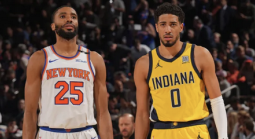Bracket Pools for March Madness Could Be Illegal

Reported by: Lindsey Ashcraft, My Fox 34 Lubbock, Texas
Mastering the science of Bracketology could mean a financial slam dunk for some college hoop fans.
"We usually have over 200 players that play including the employees. They don't get any of the money we give out though only for the customers," says Brummett.
March Madness consumes sports bars like Cujo's every year as patrons participate in bracket pools in hopes of turning their picks into cold, hard cash, but can this form of gambling become illegal? According to Tom Brummett with the District Attorney's Office the answer is yes if three provisions in the Texas Penal Code are not met.
"Number one that the gambling takes place in a private place, a private location. Number two nobody can get any money or receive any benefit other that there personal winnings and what this has to do is with the house fee making sure that somebody isn't running a gambling operation and making money off the participate. They can get money, but it has to be their personal winnings and the third provision is that except for the influence of luck or chance that the chances are the same for everybody to win," says Brummett.
Brummett says those who participate in an office pool don't risk punishment.
"The only question that may arise is on the public place because some offices that people run these pools on may be considered not a private place that my be public, but we want people to rest assure that they're not going to be prosecuted by this office as long as those other two things are met. There's no house fee and it's just a friendly pool among co-workers," says Brummett.
Brummett adds no one has ever presented a case involving March Madness gambling during his seven years at the DA's office.













